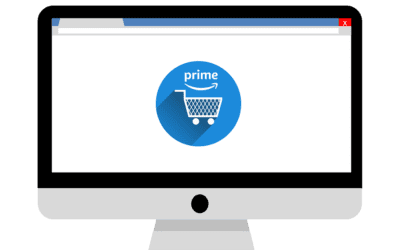Efficient inventory management is essential for 7-and 8- figure Shopify businesses to accelerate growth, stay competitive, and even get ahead of the competition.
However, finding the right inventory management solution for your business’s needs can be time-consuming, given the numerous options available.
To help, we have compared popular inventory management apps — including apps best for basic or low-end, mid-tier, and enterprise needs.
Article Contents
Budget-friendly options
Shopify’s default inventory capabilities
Shopify’s in-app inventory management provides basic features that can work well for new businesses that only use Shopify and no other sales channels. But, as your business grows and you add new sales channels, you may need more powerful and advanced tools.
Unlike with most inventory management software solutions, you have to set up the Shopify inventory management techniques and functions manually. That said, the built-in features let you set up tracking, view, and adjust your stock counts.
Key inventory management features include:
- Ability to set up automated collections
- Set up automated inventory tracking for items (but you have to manually set this option for each product initially)
- Ability to hide products that are out of stock
- Set a reorder point
- Set a safety stock for your SKUs to avoid or minimize stockouts
- Create bundles of your products to see as kits
Pricing: The default inventory features come with Shopify.
DIY in Google Sheets / Excel Spreadsheets
Using Google Sheets or Excel to track and manage your Shopify inventory is a cost-effective and simple solution — but it can be challenging to maintain as your business scales.
You can find free templates online that help you set up and identify key items to track. Additionally, you can use embedded formulas to help you automatically calculate information as numbers change.
However, spreadsheets require more manual entry and monitoring compared to inventory management apps and software. This takes more time and can result in more errors. You also don’t get real-time data to help inform your decisions. Additionally, this process can be unwieldy as your business scales and expands into more sales channels.
Plus, you can find free templates online or create your spreadsheet.
Mid-tier options
*Bean Ninjas’ Top Pick* Finale Inventory
Finale Inventory is a cloud-based, multichannel inventory and warehouse management system designed to help you scale your business.
Finale Inventory’s Shopify integration is easy to set up and use. Plus, it integrates with your other sales channels, so you can have a clear end-to-end view of your business.
Some key features include:
- Centralized inventory and multi-warehouse inventory management tools
- Separate or shared inventory tracking options
- Automatic updates to inventory to avoid overselling
- Restock forecasting and key reporting features
- Creating and tracking product bundles, including tracking stock of items as a bundle and separately
- Tools to efficiently manage customer orders and monitory stock in every location, with automatic updates on stock levels every five minutes
- Various third-party integrations
- Customer support by email, chat, or phone for all plans, including at least 1 virtual training session
Pricing: Plans start at $75 per month.
SkuVault
SkuVault integrates seamlessly with Shopify providing key automation and up-to-date data and product information so your workflows are efficient and avoid oversells.
SkuVault’s easy-to-use Shopify inventory management integration provides powerful reporting tools and fast data syncs (every five to seven minutes), so you can easily oversee your inventory and warehouse. Additionally, its tools help you streamline the fulfillment and shipping process and reduce errors so you sell, pick, and ship faster.
Some key features include:
- Automatically syncing your products and data to help expedite the implementation process
- Automatically pull orders from Shopify to speed up the order fulfillment process
- Automate your inventory to save time and reduce errors
- Synch online and POS orders
- Reporting and forecasting tools
- Various third-party integrations
Pricing: Plans start at $359 per month.
Extensiv Order Manager
Extensiv Order Manager (formerly Skubana) provides a centralized place to monitor and control your ecommerce business across multiple sales and fulfillment channels. This back-end solution lets you synchronize data on orders, costs, fulfillments, and profitability reporting.
Extensiv connects directly with various marketplaces, like Shopify. For example, you can sync your inventory and order tracking information from your OMS and WMS tools to your marketplace so your store is up to date. Additionally, information is shared seamlessly with your warehouses to facilitate shipping.
Extensiv offers a variety of features essential to Shopify businesses, including:
- Automation tools to streamline and efficiently manage all aspects of your omnichannel order fulfillment
- Ability to track and integrate shipping
- Forecast future demand
- Control and replenish your inventory
- Insights on your sales activities to help you drive sales and scale
- Various third-party integrations, including all major ecommerce marketplaces
Pricing: Extensiv integration manager plans start at $39 per month with the first month free.
Brightpearl
Brightpearl is a cloud-based inventory management program that helps simplify and streamline retail operations so you can grow. This software, which Shopify endorses, provides a single, end-to-end view of your whole business.
Brightpearl works seamlessly with Shopify providing merchants with tools to assist with inventory management, inventory demand planning, order management, and warehouse management.
Some key features include:
- Plug & Play automated shipping integrations and integrations with other sales channels, tools, and apps
- Shipping carrier mapping
- Multi-location inventory mapping
- Automation tools to assist with inventory management, inventory demand planning, order management, and warehouse management
- Powerful reporting tools, including instant performance view and data-driven demand forecasting
- Integrated POS
- Multichannel fulfillment with FBA
- 24/7 customer support
Pricing: Contact a Brightpearl customer service representative for a quote or to request a demo.
Cin7 Core
Cin7 Core’s Shopify integration helps streamline your order process, provides up-to-date stock availability, and simplifies order fulfillment.
Cin7 Core also provides a centralized place to view all sales channels, warehouses, and accounting to give you key insights and analytics on your business.
Some key features include:
- Automation to streamline your order processes and fulfillment
- Real-time stock availability and updates
- Batch orders to ease reconciliation
- Update stock automatically and in real-time to reduce eros
- Reduce administration time by automatically downloading orders, customer details, and dispatch orders
- Multichannel order management
- Reports and key analytics
- Various third-party integrations
Pricing: Plans start at $325 per month and include a free trial.
Enterprise-level options:
Netsuite
Netsuite provides advanced inventory management, including automated workflows, reorder points, and more.
This software provides you with a single, real-time view of your inventory across all sales channels and locations. So you can optimize your inventory, avoid stockouts, and ensure availability across sales channels.
Some key features include:
- ERP integration helps speed up the customer returns process
- Automation for inventory tracking
- Back and forward trace inventory using lot and serial tracing
- Real-time and company-wide inventory updates and visibility across all places where you manage or stock inventory
- Multi-location fulfillment to streamline shipping, minimize errors, and reduce costs
- Demand-based replenishment, using historical and seasonal sales data and more to ensure sufficient stock is available
- Inventory cycle counting and automation to improve the efficiency and accuracy of your inventory management
- Powerful reporting tools and analytics, including the Item 360 Dashboard
- Tools to help you simplify accounting tasks, like recording transactions
- Various third-party integrations
SAP Business One
SAP Business One helps small to midsize companies manage their accounting, inventory, purchasing, sales, customer relationships, and reporting and analytics.
The Shopify SAP Business One integration automates transactions between SAP Business One and Shopify to save you time, increase productivity, and increase the accuracy of your data and customer orders.
Key inventory management features include:
- Product and inventory sync, even for kits, bundles, pricing matrix, and more
- Monitor stock levels and pricing in real-time
- Fillment management features to help you transfer shipment tracking details and keep customers informed
- Track cancellations and refunds
- Warehouse and accounting integration in real-time
- Integrated reports using real-time data
- Tools to streamline the procurement process
- Intuitive dashboard to track revenues, costs, and cash flow
- Various third-party integrations
Microsoft Dynamics 365
Microsoft Dynamics 365 combines enterprise resource planning (ERP) with customer relationship management (CRM) to provide an all-in-one, comprehensive software solution for ecommerce businesses.
As a result, you can deliver personalized, unified, and efficient buying experiences for your customers across multiple platforms, including Shopify. It also offers powerful inventory and warehouse management tools to streamline your Shopify business.
Some key inventory management features include:
- Automation and tools to help with inventory management, planning, and forecasting in real-time
- Vendor collaboration portals to streamline the procurement process
- Monitor orders and stock in real-time across multiple channels
- Automation and tools to streamline warehouse management and fulfillment, including optimizing inventory
- Integration with automated material handling for picking
- Powerful reports and real-time analytics
- Various integrations with front- and back-end business applications
***
When you are just getting started, you can get by managing your inventory through Shopify’s built-in features or a simple spreadsheet. However, once you are selling on multiple channels or cross $1M in revenue, you are going to need a more sophisticated solution.




